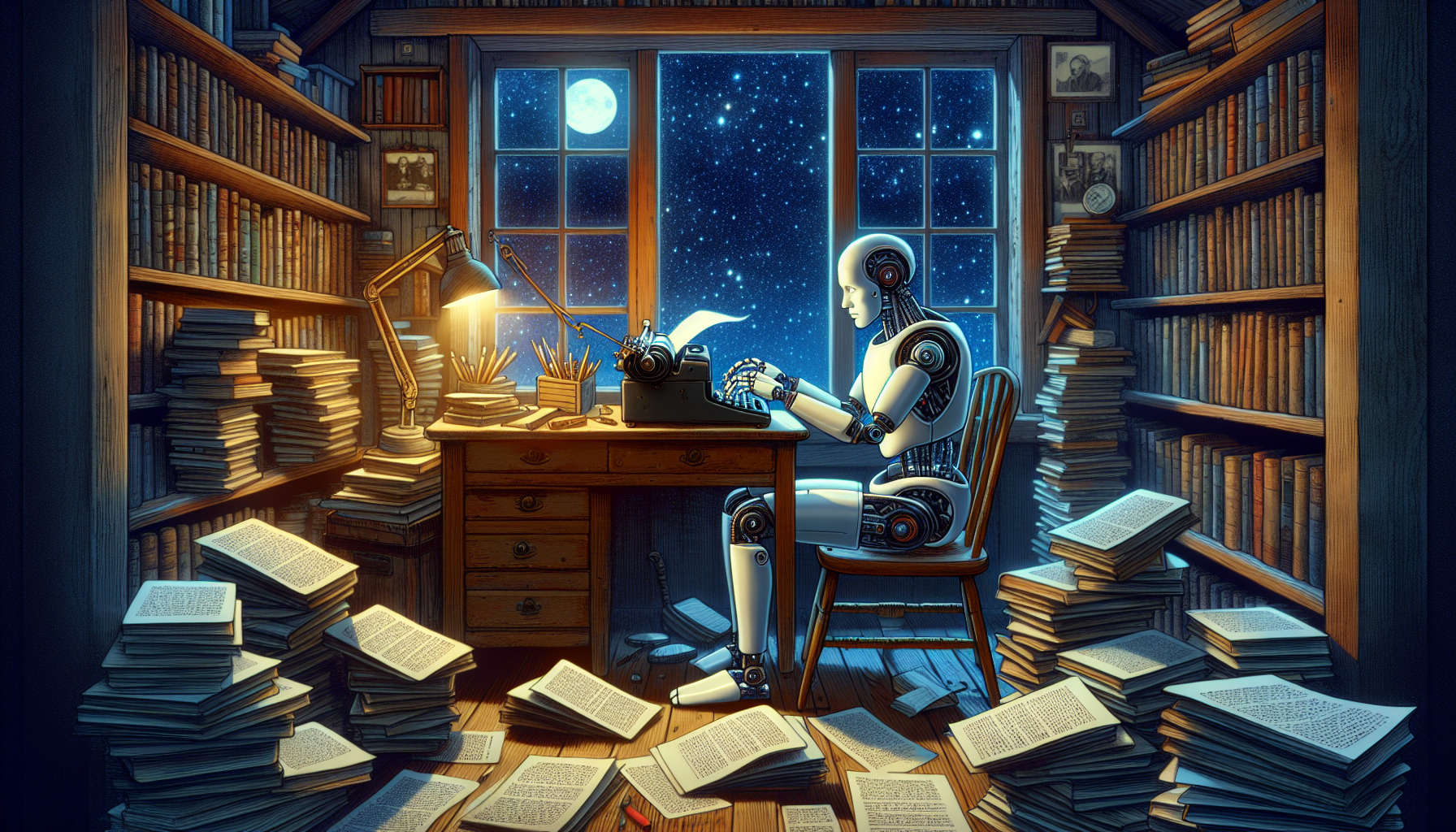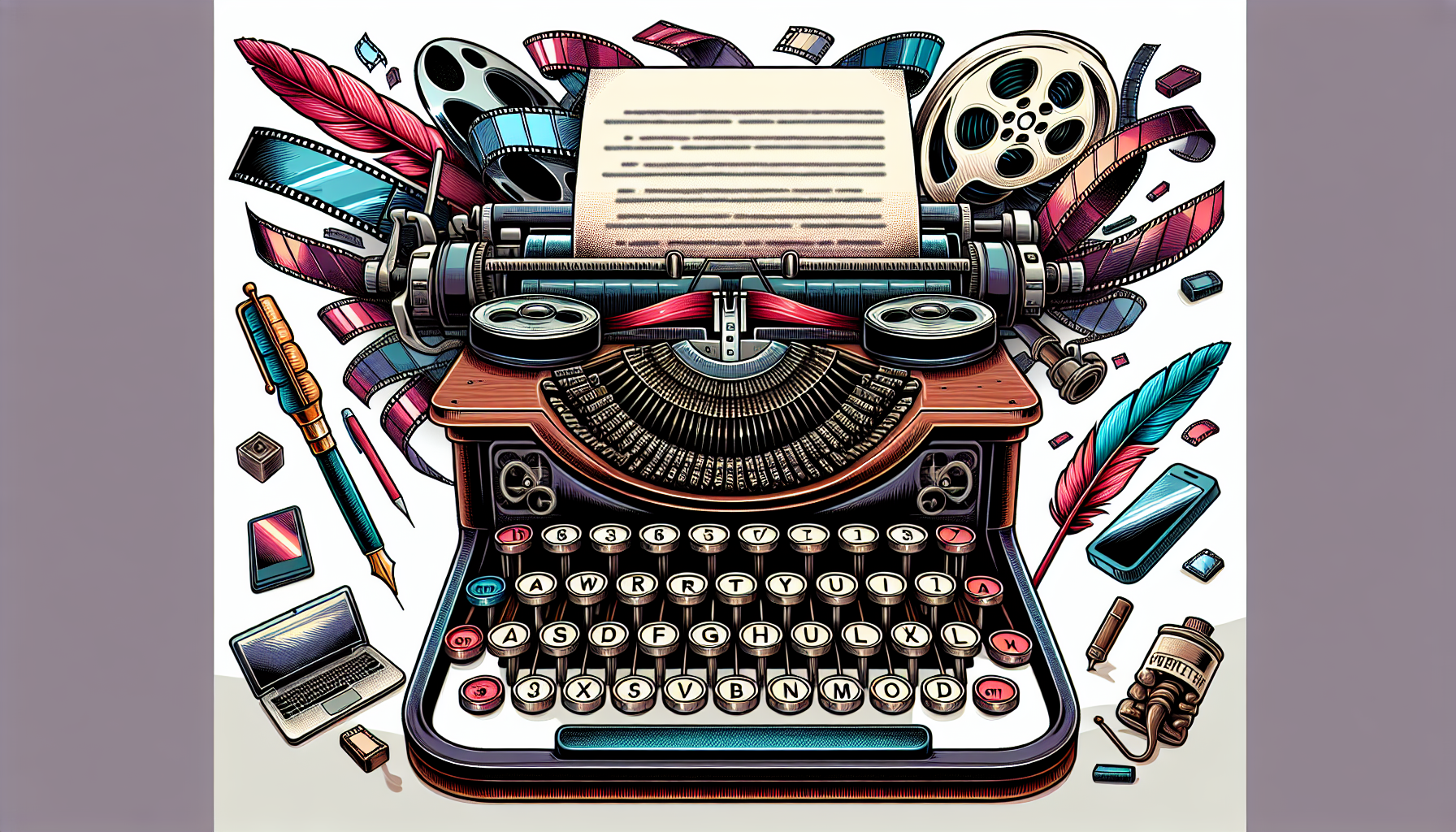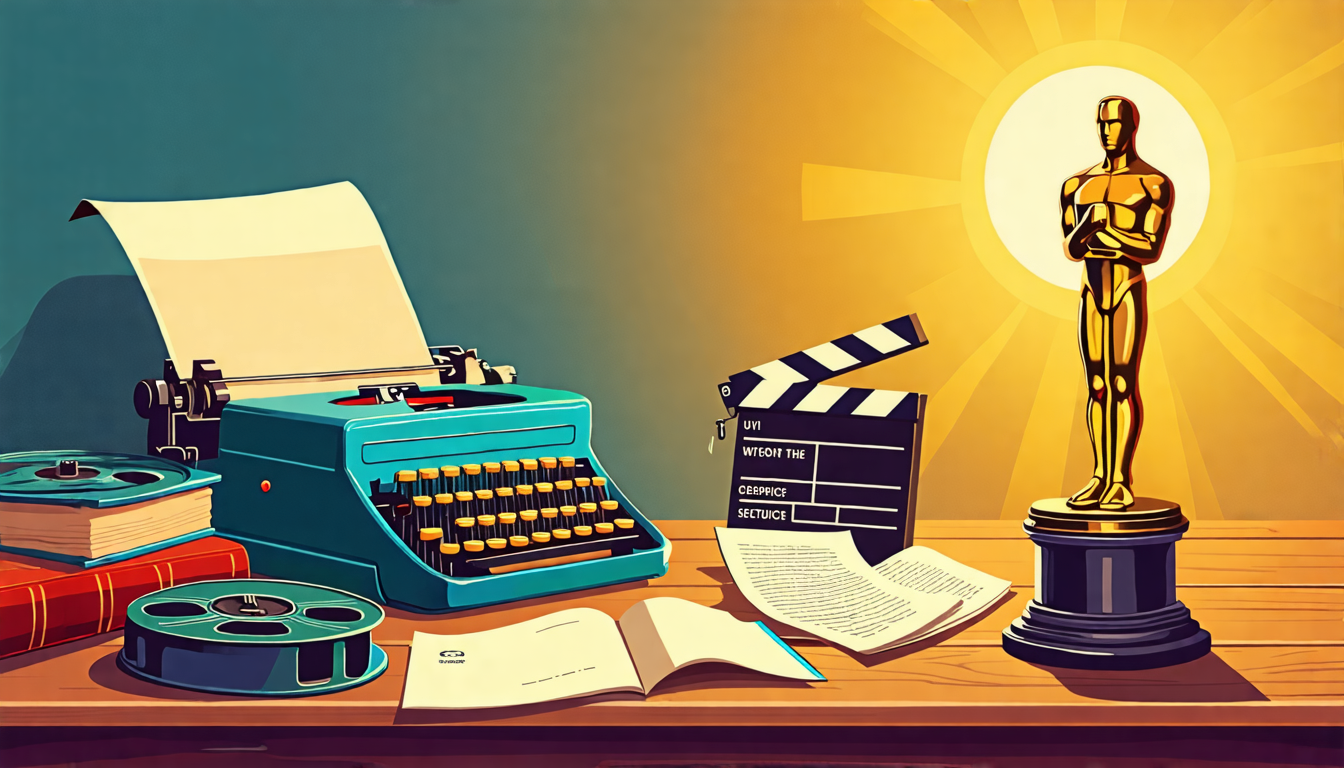
Roll Credits: The Adventure of AI-written Screenplays in Hollywood
The Rise of the Machines… in Screenwriting?
Oh, the glamorous life of a screenwriter! The thrumming typewriters, the crumpled paper, the stale coffee — what? You thought it was all red carpets and Oscar speeches? Add a dab of artificial intelligence to the mix, and the plot thickens. We’re not just talking spellcheck on steroids; AI today is penning full scripts, from haunting romances in rain-soaked alleys to high-stake alien invasions. But can you sell these AI-crafted epics? Fasten your seatbelts; it’s law, ethics, and drama rolled into one.
First Things First: Who’s the Real Scriptwriter Here?
Imagine AI as a modern-day Shakespeare. It writes, you polish, and presto, you both take a bow. One small hiccup: who signs the contract? Traditionally, the law likes its authors to be, well, human. Copyright hinges on originality and creative input, typically a no-go zone for our silicon friends. Turning an AI-generated script into box-office gold, therefore, poses a quirky challenge: who gets the credit? For now, you’d typically be the one holding the pen—or at least the one programming the parameters—making you the author. Our AI? Sorry, it’s just the ghostwriter (and not the romantic kind who haunts your attic).
The Legal Labyrinth: Navigating Copyright with AI
Here’s where it gets juicier than a Hollywood scandal. The law hasn’t fully caught up with AI’s screenplay shenanigans. If you’re angling to sell a script written (or co-written) by AI, tread carefully. Legally, registering for copyright means claiming human authorship, putting creators in a murky puddle of ethical and legal questions. Did the AI just help out, or was it the mastermind? Until the law explicitly defines AI’s role in creative processes, selling an AI-fueled script might require a blend of transparency, good legal counsel, and perhaps a dash of old-fashioned luck.
Market Ready or Writing Room Nightmare?
Say you’ve hurdled over the legal barriers (or ducked under them), is your AI-script ready to charm the socks off studio execs? Here’s the kicker: AI can churn out scripts, no doubt, but the je ne sais quoi of a blockbuster hit often lies in the subtle nuances that AI struggles to grasp. Character depth, emotional arcs, dialogues that sound like actual human conversation — these are the spices that cook up a memorable screenplay. Your role? Refining, editing, and injecting soul into the ones and zeros. Without this human touch, your AI script might just end up as another robotic wannabe.
Hollywood’s New Normal?
As technology gallops ahead, don’t be surprised if AI-written scripts become as standard as CGI explosions in action flicks. Some filmmakers and tech enthusiasts are already experimenting with AI in scripting processes, and the results are…interesting. But before we hand over the reigns of our beloved film industry, let’s remember: cinema is art, and art is human (at least until our AI overlords prove us otherwise). So, by all means, collaborate with AI, but ensure it’s you — the human — who puts the final brushstroke on the canvas.
Final Frame
Can you sell a screenplay written by AI? Absolutely — with a sprinkle of human creativity, a solid understanding of current copyright laws, and a compelling narrative that keeps the audience glued to their seats. So next time you boot up your screenplay-generating AI, remember: you’re not just a writer; you’re a pioneer on the frontiers of art and technology. Lights, camera, action — let the AI play a part, but make sure it’s not the star.






